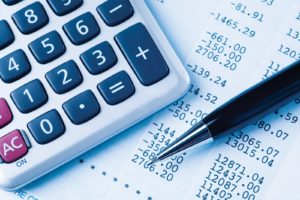
By budgeting and tracking your spending, you’ll be more likely to achieve your goals.
Do you find that you’re always strapped for cash? I’m willing to bet that you don’t have a budget. A budget show you how much money you have coming in and going out. It can help you break bad spending habits. Not having a budget is a lot like driving a car without a fuel gauge—you’ll never know when you’ll run out of fuel (read “money”). Unfortunately, many of us are driving in the dark. Surveys reveal that only about half of families have a budget. (I dedicate an entire chapter to budgeting in my book, Burn Your Mortgage: The Simple, Powerful Path to Financial Freedom for Canadians.)
Despite the benefits of budgeting, some still feel it’s not worth the effort. David Bach, bestselling author of the Automatic Millionaire, recently put forward an interesting argument against budgeting. Bach compares budgeting to going on a diet. If it’s not fun, your chances of sticking with it are slim to none.
For that reason, Bach is in favour of “paying yourself first.” He recommends saving at least 20 percent of your paycheque in a high-interest savings account. After that you’re free to use the rest of your money as you see fit. While I’m all for making savings a priority, I still think that preparing a budget is a worthwhile exercise. Without a budget, it’s hard to know where you’re spending your money.
You work hard for your money, so you have every right to enjoy it. Similar to renting, there’s a negative stigma with budgeting. Many people assume that by creating a budget, they’re depriving themselves of the things that they love, when that simply isn’t the case. There’s nothing wrong with having fun, as long as you budget for it.
When it comes to budgeting, the hardest part isn’t creating a budget, it’s tracking your spending. Instead of tracking your spending to the penny, a much better approach is to focus on the two or three spending categories you’re most likely to overspend in, such as clothing, electronics, restaurants and entertainment. Spending $30 here and there on restaurants may not seem like a lot, but when you realize that you’re spending $150 a month on restaurants, you might consider going out for coffee or drinks instead.
4 Simple Ways to Track Your Spending
So you’ve taken the important first step of creating a budget. Bravo! But a budget is only one half of the equation. It’s equally important to track your spending. Here are four simple ways to track your spending.
1. Mint
Mint is a powerful money management app. Not only can you track your spending, you can keep an eye on your bank accounts, credit cards and investments. You can even set up reminders, so you never forget to pay another bill again. There’s one catch – you have to feel comfortable sharing your banking passwords with Mint.
Mint isn’t the only budgeting app out there. There are plenty of others. Wally is another budgeting app that I highly recommend.
2. Spreadsheet
If you’re not comfortable sharing your personal information with Mint, you might be better off with a budgeting spreadsheet. I’ve creating my very own “Burn Your Mortgage” budgeting spreadsheet to help you keep track of your spending and reach your goals, such as saving a down payment and paying off your mortgage, sooner.
3. Credit Cards
Not only are credit cards a great way to earn cashback and rewards, they’re also great for tracking your spending. Credit cards like the Tangerine Money-Back Credit Card categorize your spending for you, so you don’t have to. You’ll know exactly how much money you’ve spent on groceries, gas, restaurants and entertainment in any given month. You can even download a copy of your credit card statements to use in budgeting software and spreadsheets.
4. Online Banking Tools and Apps
The big banks are also getting into the “tracking your spending” game. Online banking tools and apps that let you track your spending include BMO MoneyLogic, RBC Royal Bank myFinanceTracker and TD MySpend. Although I’m not in favour of paying monthly banking fees, if you stay above the minimum balance to avoid bank fees and take advantage of the free tools, I’m all for it.
Sean Cooper is the bestselling author of the book, Burn Your Mortgage: The Simple, Powerful Path to Financial Freedom for Canadians, available now on Amazon and at Chapters, Indigo and major bookstores, and as an Audiobook on Amazon, Audible and iTunes.